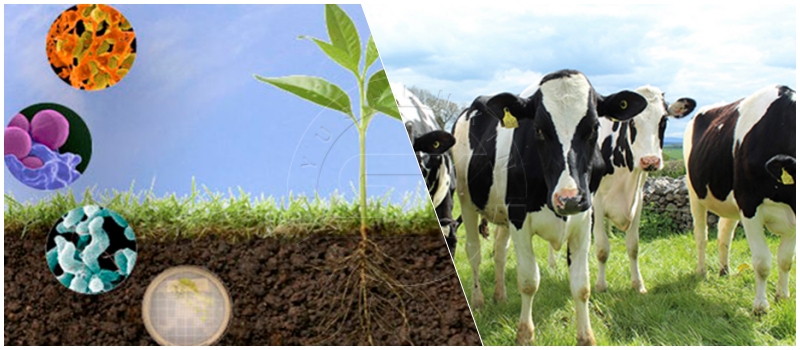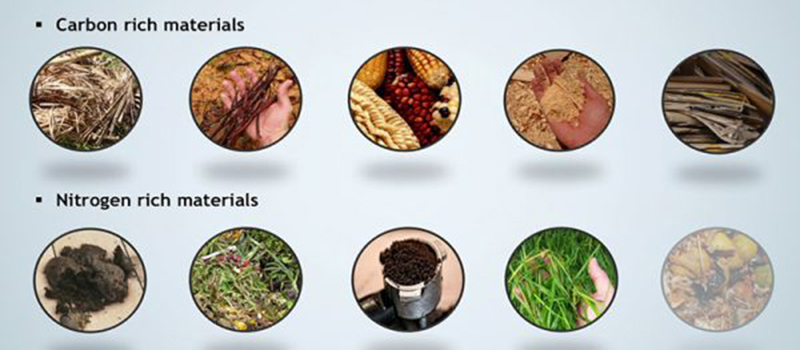Cow dung is one of the most abundant and valuable raw materials for organic fertilizer production. However, turning raw manure into high-quality fertilizer requires a well-structured processing line supported by specialized equipment. This blog outlines the relative equipment used in the cow dung fertilizer production, covering each stage from material pretreatment to final packaging.
1. Solid-Liquid Separator
Purpose:
Fresh cow dung contains high moisture (up to 80%), which must be reduced before composting.
Key Equipment:
- Screw-type solid-liquid separator: Mechanically presses out water, reducing moisture to around 60%, ideal for aerobic fermentation.
- Manure pump and feeding unit: Transports raw dung to the separator efficiently.
This equipment is the essential first step in a cow dung fertilizer production line.
2. Composting System
Purpose:
Ferment the semi-solid manure to eliminate pathogens, stabilize nutrients, and prepare for granulation.
Key Equipment:
- Groove-type compost turner: Ideal for large-scale, fixed composting systems.
- Crawler-type windrow turner: Flexible for open-air or mobile composting setups.
- Aeration system (optional): Supplies oxygen to piles, accelerating microbial decomposition.
With proper cow dung compost turning equipment, fermentation time can be reduced to 15–20 days.

3. Crushing and Mixing Units
Purpose:
Refines composted materials and ensures uniformity before granulation.
Key Equipment:
- Semi-wet material crusher: Breaks down clumps and fibers in fermented cow dung.
- Horizontal mixer or double-shaft mixer: Mixes compost with additives such as microbial inoculants or trace minerals.
Efficient mixing is crucial for consistent fertilizer quality.
4. Granulation Equipment
Purpose:
Transforms fine compost into uniform, easy-to-apply granules.
Key Equipment:
- New type organic fertilizer granulator: Specially designed for high-organic-content materials like cow dung.
- Disc granulator: Cost-effective option for small to medium production.
- Rotary drum granulator: Ideal for continuous, high-capacity production.
Proper granulation improves product storage and application performance.
5. Drying and Cooling System
Purpose:
Reduces moisture to enhance shelf life and prevent caking during storage.
Key Equipment:
- Rotary dryer: Uses low-temperature drying to preserve nutrients.
- Rotary cooler: Prevents microbial reactivation and granule deformation after drying.
Controlled drying and cooling are essential for maintaining granule integrity.
6. Screening and Recycling
Purpose:
Ensures product uniformity and reprocesses oversized/undersized particles.
Key Equipment:
- Rotary drum screening machine: Separates qualified granules from unqualified ones.
- Return conveyor system: Sends rejected particles back to the crusher or granulator.
This improves efficiency and reduces waste in the production line.
7. Coating and Packaging System
Purpose:
Enhances product appearance and prevents moisture absorption.
Key Equipment:
- Coating machine: Applies anti-caking agents to granules (optional).
- Automatic packaging machine: Weighs, fills, seals, and stacks bags efficiently.
Accurate packaging helps ensure commercial viability and customer satisfaction.
Welcome to contact YUSHUNXIN to get the high-quality cow dung fertilizer processing machine.
Оборудование для компостирования
Conclusion
A complete cow dung fertilizer production line involves several stages, each supported by specialized equipment. From moisture reduction to composting, granulation, drying, and packaging, every machine plays a vital role in producing safe, efficient, and nutrient-rich organic fertilizer.
Investing in the right relative equipment for cow dung fertilizer production not only ensures high output but also maintains product quality and environmental compliance. Welcome to visit: https://www.fertilizerequipmentprice.com/cow-dung-fertilizer-production-line/


